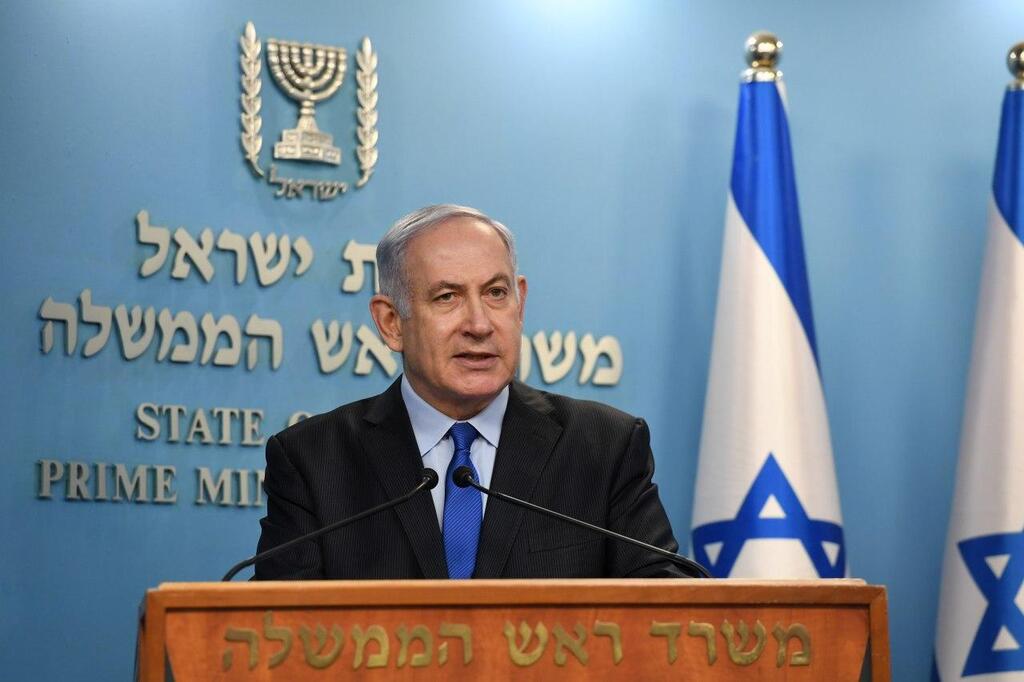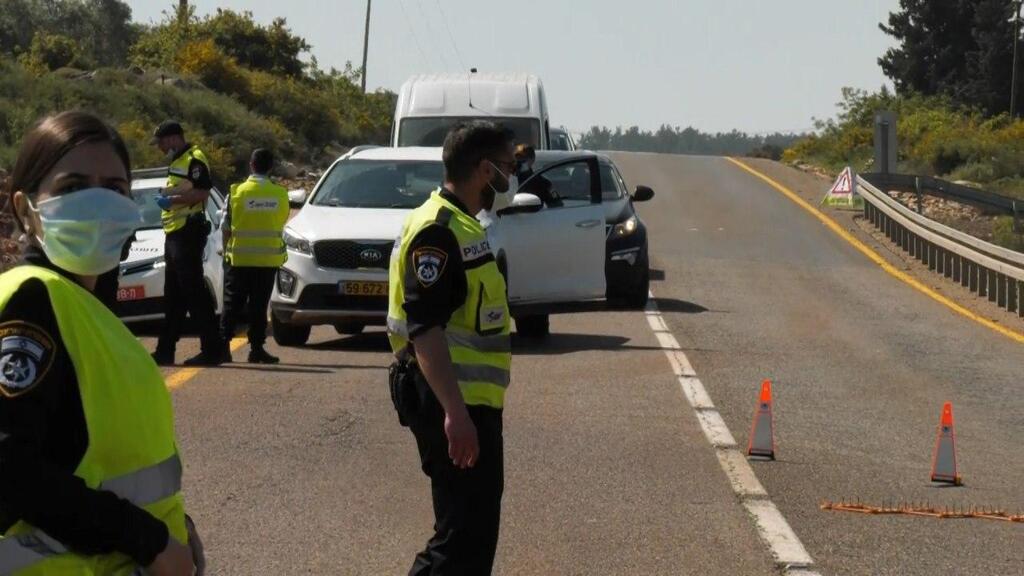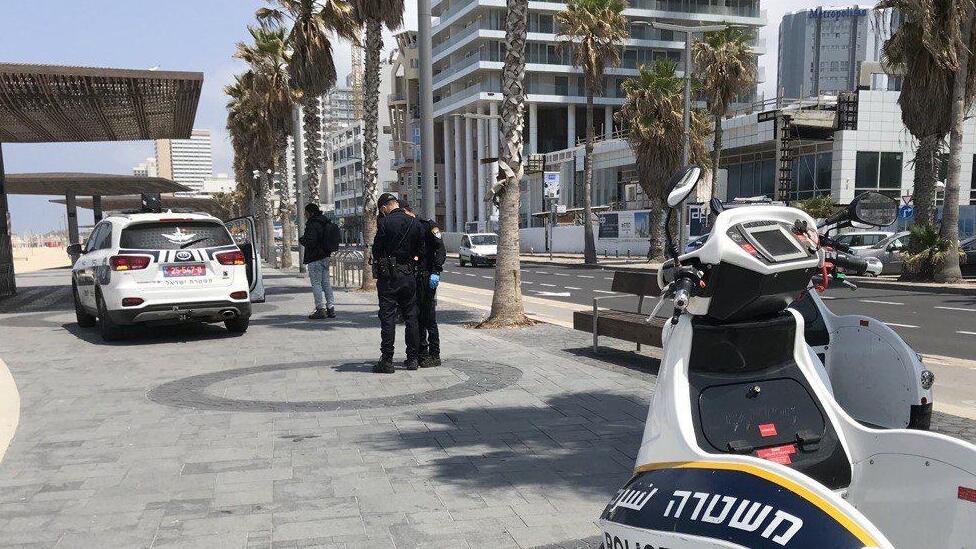Getting your Trinity Audio player ready...
IUusrael will on Sunday begin slowly easing the restrictions on daily life imposed to fight the spread of the coronavirus, Prime Minister Benjamin Netanyahu announced on Saturday.
The measures, which Netanyahu said were compiled in conjunction with the Health Ministry and Treasury, were expected to be approved in a late-night cabinet meeting Saturday.
3 View gallery


Prime Minister Benjamin Netanyahu announcing new government policy on Saturday night
(Photo: GPO)
"We will start to release the economy and open up personal movement," Netanyahu said, adding that the authorities would re-evaluate the decision in two weeks.
If there is no spike in virus cases, more restrictions will be eased, but if there is a sharp increase, restrictions would be re-imposed, he said.
Authorities in Israel have steadily tightened a partial lockdown imposed on March 14, shuttering offices, closing schools and ordering people to stay mostly at home.
The measures have battered the economy, forced many businesses to close and sent unemployment above 25%.
But in televised remarks Saturday, Netanyahu said Israel had "succeeded in [its] mission so far" in combating the pandemic and argued that the restrictions had "proven themselves in a slowdown" in infection rates.
"Our good results enable us today to start taking steps in the opposite direction - not a tightening, but an easing," he said.
Israel has reported at least 164 deaths and nearly 13,300 cases of COVID-19, as of Saturday evening.
However, infection rates have generally declined over the past two weeks, according to Health Ministry data.
New cases peaked on March 31 at 741 but have since more than halved, with 271 new cases recorded on April 17, ministry data showed.
Beginning on Sunday, workplace staffing levels can increase to 30% from 15% and some shops will be allowed to reopen, though malls and large markets will remain closed, Netanyahu said.
From the start of the crisis, Israelis have been allowed to travel to grocery stores, pharmacies and some workplaces, but were prohibited from walking more than 100 meters from their homes.
The new measures include the opening of certain shops - including electrical appliance and computer stores, office and home furnishing retailers, eye wear sellers and book shops.
Clothing and shoe stores, shopping malls, jewelry stores, and toy stores will remain closed, as will hair and beauty salons.
All businesses will be required to maintain social distancing and limit the number of customers allowed inside at all times. Shops will be asked to record the names of people entering their place of business and take people's temperature before allowing them to come in.
Public transportation will be increased to meet the new needs as more people return to work, the prime minister said.
Special education classes will be allowed for groups of up to three children only and child care will be allowed in groups of three families with a caregiver.
All other educational institutions will remain closed.
Religious worship will also be allowed in outside spaces in groups of 10, while weddings and funerals will be allowed be include groups of up to 20 people.
The high-tech and finance industries will be opened as well as import and export companies and Industrial plants, but no customers will be allowed to enter these facilities except to collect products.
People will be allowed to resume sporting activities in groups of no more than two and the perimeter for Israelis to move outside their homes will be extended to 500 meters - as opposed to the 100 meters allowed thus far.
3 View gallery


Police enforcing a lockdown in the Arab town of Deri el-Asad, where there has been a spike in coronavirus cases
(Photo: Shamir Elbaz)
The prime minister called on Muslim Israelis to observe social distancing during the upcoming holy month of Ramadan and celebrate the daily breaking of the fast with the immediate family only. He said that just as their Jewish counterparts had celebrated Passover away from their extended families, so must the Muslim community.
Netanyahu also said the upcoming national events - Holocaust Remembrance Day, Memorial Day and Independence Day - will this year not be marked in the public space but rather by families in their own homes.
The prime minister also repeated his call for Blue & White leader Benny Gantz to reach an agreement on a "broad and stable" government with his own Likud party.
"No one wants a unity government more than I do," Netanyahu said, adding that such a coalition was important for dealing with the challenges posed by the coronavirus.
First published: 20:24, 04.18.20


